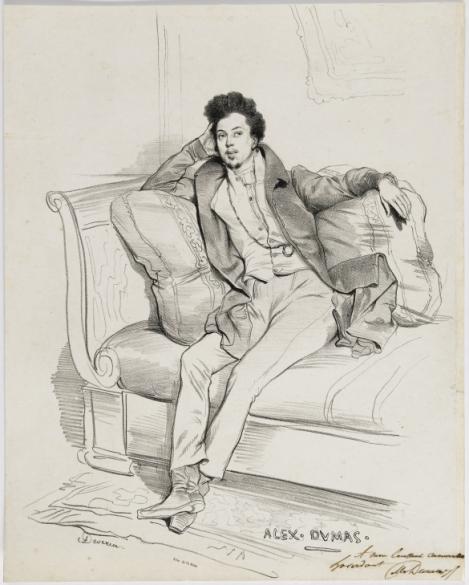

Alexandre Dumas’ father, a general during the French Revolution, was born the son of a slave in Saint-Domingue (Haiti); it was from him that Alexandre inherited his tight curls and full lips.
With close to 300 works to his credit, Alexandre Dumas was one of the era’s most prolific writers. He was also one of the most popular, thanks to the success of both his plays and his historical novels. But after experiencing prodigious success, Dumas went bankrupt: his estates were seized, and he escaped to Belgium to avoid debtor’s prison. He returned later to Paris, where he attempted, in vain, to establish a magazine, and died a ruined man.
‘Just between us, you know how little my
Lettre de Balzac à Mme Hanska, 1erdécembre 1836
This letter to Mme Hanska gives voice to the resentment Balzac felt towards Dumas, for the crime of giving evidence against him during a legal dispute with the publisher
At Balzac’s funeral, Dumas was seated in the front row, next to Victor Hugo, but he himself later wrote that he sat through it dry-eyed: ‘I did not like the man, and while I admired his talent, I must confess that his talent did not appeal to me.’